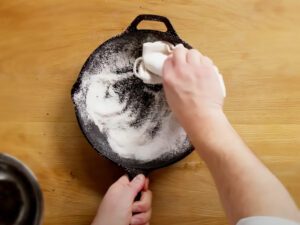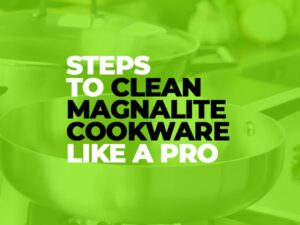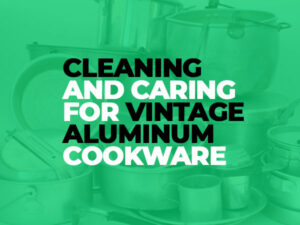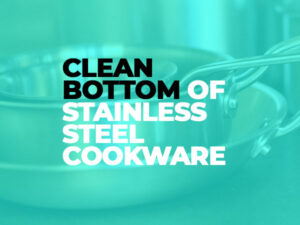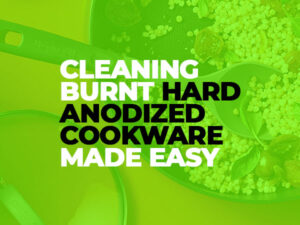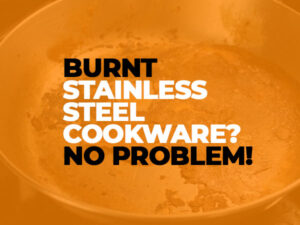As an avid home cook and proud owner of Anolon Advanced Cookware, I understand the importance of proper care to ensure that my cookware stays in top condition. Over the years, I’ve developed my expertise in cleaning Anolon Advanced Cookware, from simple steps to pro-level tricks that make a noticeable difference in maintaining its quality and performance.
In this article, I’ll be sharing my tried-and-tested techniques for keeping my cookware looking as good as new, even after repeated use. If you’re a fellow Anolon Advanced Cookware owner looking for effective cleaning methods, this article is for you. Join me as I share my personal tips and tricks to help you keep your cookware in pristine condition, so you can continue to enjoy cooking up a storm in your kitchen. Let’s dive into the world of Anolon Advanced Cookware cleaning and unlock the secrets to maintaining its beauty and functionality!
Simple Steps for Cleaning Anolon Advanced Cookware
Cleaning Anolon Advanced Cookware doesn’t have to be complicated. With a few simple steps, you can keep your cookware looking clean and well-maintained. Here are my go-to techniques for basic cleaning:
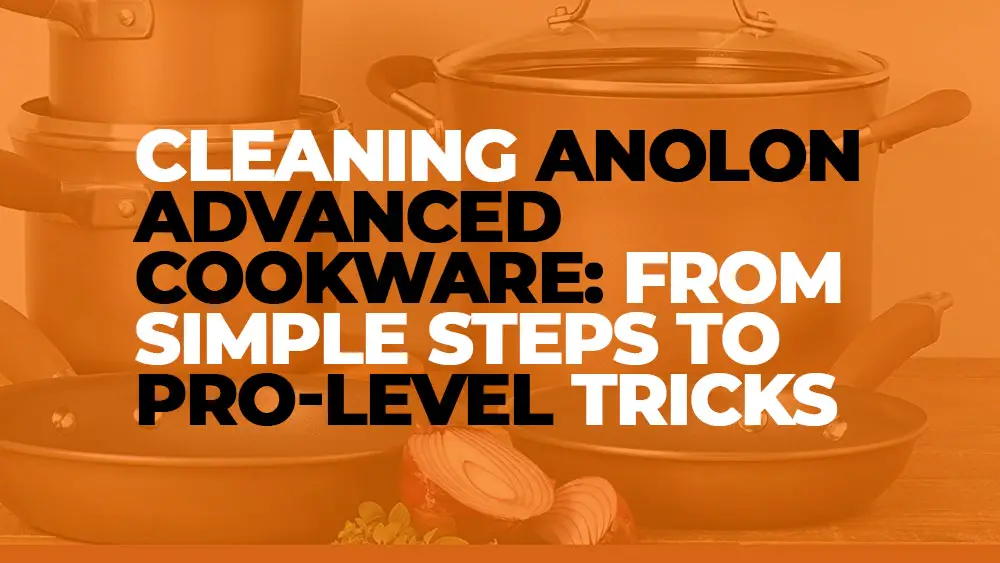
Rinse with Warm Water: After each use, it’s important to rinse your Anolon Advanced Cookware with warm water to remove any food residues. This helps prevent the build-up of stains and makes the cleaning process easier later on. Avoid using cold water, as it can cause food particles to harden and stick to the surface of the cookware.
Use a Soft Sponge or Cloth: When it comes to cleaning the nonstick surface of Anolon Advanced Cookware, it’s crucial to use a soft sponge or cloth. Avoid using abrasive materials, such as steel wool or harsh scouring pads, as they can scratch the nonstick coating and damage the cookware. Gently scrub the surface with a soft sponge or cloth to remove any remaining food residues or stains.
Mild Dish Soap: For tougher stains or greasy residues, you can use a mild dish soap specifically formulated for nonstick cookware. Apply a small amount of dish soap to your sponge or cloth, and gently scrub the surface of the cookware. Be sure to rinse thoroughly with warm water to remove all soap residue.
Dry Thoroughly: After cleaning, it’s essential to dry your Anolon Advanced Cookware thoroughly to prevent water spots and potential damage. Use a clean, dry cloth or towel to wipe down the cookware, including the handles and knobs. Allow the cookware to air dry completely before storing it.
Avoid High Heat: Anolon Advanced Cookware is designed to withstand high heat, but excessive heat can damage the nonstick coating and reduce its longevity. To preserve the nonstick coating and prevent food from sticking to the surface, avoid using high heat settings when cooking with Anolon Advanced Cookware. Medium to low heat is typically sufficient for most cooking needs.
Pro-Level Tricks for Deep Cleaning Anolon Advanced Cookware
While the simple steps mentioned above are effective for day-to-day cleaning, sometimes your Anolon Advanced Cookware may need some extra care. Here are some pro-level tricks for deep cleaning:
Baking Soda Paste: If you have stubborn stains or burnt-on residues on your Anolon Advanced Cookware, you can create a baking soda paste for a gentle yet effective cleaning solution. Mix equal parts of baking soda and water to form a thick paste. Apply the paste to the stained areas and let it sit for a few minutes. Then, gently scrub with a soft sponge or cloth to lift away the stains. Rinse thoroughly with warm water and dry the cookware completely.
Vinegar Solution: Vinegar is a natural cleaner that can help remove stains and odors from Anolon Advanced Cookware. Mix equal parts of water and white vinegar in a spray bottle. Spray the solution onto the stained areas of the cookware and let it sit for a few minutes. Then, scrub gently with a soft sponge or cloth. Rinse thoroughly with warm water and dry the cookware thoroughly.
Lemon Juice: Lemon juice is another natural cleaner that can be used to remove stains and discoloration from Anolon Advanced Cookware. Cut a lemon in half and rub the cut side over the stained areas of the cookware. The citric acid in the lemon juice helps to break down stains and brighten the surface. Rinse thoroughly with warm water and dry the cookware completely.
Barkeeper’s Friend: Barkeeper’s Friend is a popular cleaning product that can be used to tackle tough stains and burnt-on residues on Anolon Advanced Cookware. Follow the manufacturer’s instructions for use and apply the product to the stained areas of the cookware. Use a soft sponge or cloth to gently scrub the surface, paying extra attention to the stained areas. Rinse thoroughly with warm water and dry the cookware completely.
Soaking Method: For extremely stubborn stains or burnt-on residues, you can try the soaking method. Fill your Anolon Advanced Cookware with warm water and add a few tablespoons of dish soap. Let the cookware soak for several hours or overnight, depending on the severity of the stains. The warm soapy water will help to loosen the stains, making them easier to remove. After soaking, gently scrub the surface with a soft sponge or cloth, and rinse thoroughly with warm water. Dry the cookware completely before storing it.
Maintenance Tips for Anolon Advanced Cookware
To ensure the longevity and performance of your Anolon Advanced Cookware, here are some maintenance tips to keep in mind:
Avoid Metal Utensils: To prevent scratching or damaging the nonstick coating of your cookware, avoid using metal utensils, such as forks, knives, or spatulas. Instead, opt for wooden, silicone, or plastic utensils that won’t scratch the surface.
Hand Washing is Recommended: Although Anolon Advanced Cookware is dishwasher safe, hand washing is recommended to prolong the life of the nonstick coating. Dishwashers can be harsh on cookware and may cause the nonstick coating to deteriorate over time. Hand washing with mild dish soap and a soft sponge or cloth is the best way to clean and maintain your Anolon Advanced Cookware.
Store Properly: When storing your Anolon Advanced Cookware, make sure it is completely dry to prevent the formation of water spots. If possible, avoid stacking heavy or sharp objects on top of the cookware, as this can cause scratches or damage to the nonstick coating. Consider using cookware protectors or placing a soft cloth between stacked pots and pans to prevent scratching.
Regular Inspection: Periodically inspect your Anolon Advanced Cookware for any signs of damage or wear and tear. If you notice any chips, cracks, or peeling in the nonstick coating, it’s time to replace the cookware to ensure safe and effective cooking.
Can I use a dishwasher to clean Anolon Advanced Cookware?
The answer is yes, with a cautious approach. These cookware sets are generally deemed dishwasher safe, but beware! The high heat and potent detergents of the dishwasher can potentially take a toll on the nonstick coating and overall quality of your prized cookware.
The dishwasher can be a wild beast that poses risks to the longevity and performance of Anolon Advanced Cookware. The intense heat and harsh chemicals used in dishwashers have the potential to degrade the nonstick coating over time, leaving it diminished in its glory. And that’s not all! The tumultuous dishwasher cycle with its banging and clanging can result in scratches or dents on the once-smooth surface of your cherished cookware, especially if it’s jostled around with other hefty items.
But if you do choose to brave the dishwasher route, here are some guidelines to keep in mind:
Use the top rack: Place your Anolon Advanced Cookware on the top rack of the dishwasher, away from the harsh detergents and rowdy dishes that may cause harm.
Avoid the crowd: Don’t let your cookware rub elbows with too many others in the dishwasher. Overcrowding can lead to a cacophony of collisions, resulting in scratches or dents on your beloved cookware.
Treat it with care: Opt for a gentle or delicate cycle with low heat and mild detergents to show kindness to the delicate nonstick coating of your cookware.
Hand dries with love: Once the dishwasher has worked its magic, hand dry your cookware with tender care to prevent any water spots and ensure it’s thoroughly dry before you lovingly store it away.
In conclusion, while it’s possible to unleash your Anolon Advanced Cookware into the wild world of the dishwasher, it’s wise to exercise caution. Hand washing with a gentle touch using mild dish soap, a soft sponge, or cloth is recommended to safeguard the longevity and performance of the precious nonstick coating that makes your cookware truly shine.
What type of utensils should I use to clean Anolon Advanced Cookware?
Cleaning Anolon Advanced Cookware requires a delicate touch and the right utensils to preserve its pristine nonstick coating. Here are some tips on the type of utensils you should use for a cleaning routine that will leave your cookware gleaming:
Gentle sponge or cloth: Opt for a soft sponge or cloth that is specifically designed for nonstick cookware. Avoid using abrasive scrubbers, steel wool, or harsh scouring pads, as they can mar the nonstick coating and compromise its effectiveness.
Non-abrasive cleaning brush: When dealing with stubborn stains, reach for a non-abrasive cleaning brush with soft bristles. Steer clear of brushes with hard bristles or metal components, as they can scratch the delicate nonstick coating.
Silicone or wooden utensils: Choose silicone or wooden utensils when cleaning Anolon Advanced Cookware to prevent any scratching or chipping of the nonstick coating. Avoid using metal utensils, as they can leave unsightly marks on the cookware’s surface.
Mild dish soap: Stick to a mild dish soap that is specifically formulated for nonstick cookware. Avoid using harsh detergents or abrasive cleaners, as they can harm the nonstick coating.
Warm water: Use warm water to clean your cookware, as it can help to loosen food debris without damaging the nonstick coating. Avoid using extremely hot water or soaking the cookware for extended periods, as this can lead to warping or damage to the nonstick coating.
Is it safe to use abrasive cleaners on Anolon Advanced Cookware?
It’s important to avoid using abrasive cleansers on Anolon Advanced Cookware since they can harm the nonstick coating and reduce its efficacy. Food may stick to the cookware over time as a result of abrasive ingredients such as scouring powders, harsh detergents, or abrasive cleaning pads causing scratches, chipping, or peeling of the nonstick coating.
Anolon Advanced Cookware’s nonstick coating is made to be resilient, however, utilizing abrasive cleansers can still damage it. These abrasive substances can remove the nonstick coating, exposing the metal underneath, making the cookware more prone to sticking and more challenging to clean.
It’s best to avoid using abrasive cleansers if you want to keep your Anolon Advanced Cookware in top condition. To clean the cookware without damaging the nonstick coating, use warm water, mild dish soap, and nonabrasive cleaning products like soft sponges, towels, or cleaning brushes. Your cookware will last longer if you take care of it properly, and you may use it in the kitchen safely and productively.
How frequently should Anolon Advanced Cookware be cleaned?
Cleaning your Anolon Advanced Cookware after each use is advised as a general rule to avoid food residue building up and making cleanup later difficult.
Simply use a gentle sponge or cloth to wash the kitchenware in warm water and mild dish soap after each use. Avoid using aggressive detergents, abrasive cleaners, or metal utensils since they might ruin the nonstick coating.
You might need to clean anything more thoroughly if there are food burnt-on or stains that won’t go away. To remove the residue before cleaning, you can briefly soak the cookware in warm, soapy water. If necessary, gently remove the tough spots with a non-abrasive cleaning brush or scrubber.
It’s also important to keep in mind that using metal utensils, applying too much heat, or immersing your Anolon Advanced Cookware for an extended period of time will all harm the nonstick coating.
You can preserve your Anolon Advanced Cookware’s optimum performance, durability, and enjoyment in your kitchen for years to come by cleaning it properly and on a regular basis.
Can you stack Anolon Advanced Cookware without damaging the nonstick finish?
Although Anolon Advanced Cookware is made with a sturdy nonstick coating that is scratch-resistant, stacking the cookware is typically not advised. Heavy pots, pans, or bakeware with nonstick coating should not be stacked on top of one another to avoid scratching or damaging the nonstick coating, which could eventually reduce the nonstick coating’s function.
It is important to keep your Anolon Advanced Cookware in a way that minimizes contact between the nonstick surfaces in order to preserve the nonstick coating. If you must stack the cookware due to limited storage space, consider placing a soft, non-abrasive liner, such as a silicone mat or a cloth towel, between the nonstick surfaces to prevent direct contact and potential scratching.
Alternatively, you can also consider using a pot rack, a cookware organizer, or hanging hooks to store your Anolon Advanced Cookware separately, which can help protect the nonstick coating and prolong its lifespan. For years of joyful cooking, the quality and functionality of the cookware can be maintained with proper handling and storage.
Final Thoughts
Cleaning Anolon Advanced Cookware is a straightforward process when you follow the simple steps and pro-level tricks outlined above. By using gentle cleaning methods, avoiding abrasive materials, and following proper maintenance tips, you can keep your Anolon Advanced Cookware looking clean and well-maintained for years to come. Remember to always read and follow the manufacturer’s instructions for cleaning and care, and enjoy the benefits of cooking with high-quality, nonstick cookware that enhances your culinary experience. Happy cooking and happy cleaning!


